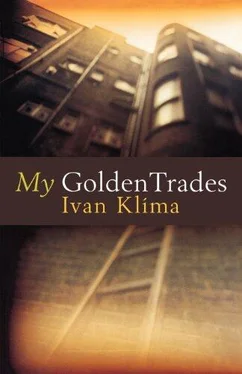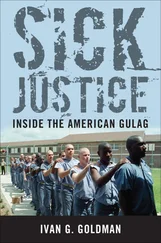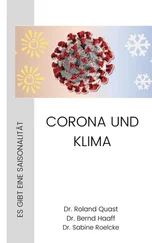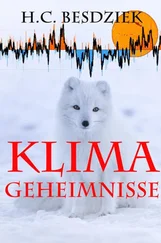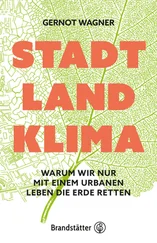Ivan Klima - My Golden Trades
Здесь есть возможность читать онлайн «Ivan Klima - My Golden Trades» весь текст электронной книги совершенно бесплатно (целиком полную версию без сокращений). В некоторых случаях можно слушать аудио, скачать через торрент в формате fb2 и присутствует краткое содержание. Год выпуска: 1998, Издательство: Granta UK, Жанр: Современная проза, на английском языке. Описание произведения, (предисловие) а так же отзывы посетителей доступны на портале библиотеки ЛибКат.
- Название:My Golden Trades
- Автор:
- Издательство:Granta UK
- Жанр:
- Год:1998
- ISBN:нет данных
- Рейтинг книги:4 / 5. Голосов: 1
-
Избранное:Добавить в избранное
- Отзывы:
-
Ваша оценка:
- 80
- 1
- 2
- 3
- 4
- 5
My Golden Trades: краткое содержание, описание и аннотация
Предлагаем к чтению аннотацию, описание, краткое содержание или предисловие (зависит от того, что написал сам автор книги «My Golden Trades»). Если вы не нашли необходимую информацию о книге — напишите в комментариях, мы постараемся отыскать её.
My Golden Trades — читать онлайн бесплатно полную книгу (весь текст) целиком
Ниже представлен текст книги, разбитый по страницам. Система сохранения места последней прочитанной страницы, позволяет с удобством читать онлайн бесплатно книгу «My Golden Trades», без необходимости каждый раз заново искать на чём Вы остановились. Поставьте закладку, и сможете в любой момент перейти на страницу, на которой закончили чтение.
Интервал:
Закладка:
wedding gown off the ground and occasionally making a show of trying to escape from her captors. When they pushed her into a decorated car that had squealed to a stop by the main entrance, she began to giggle in a high, joyous, seductive voice. As the car careered out on to the road, she managed to wave out of the window at us and at the other wedding guests who had meanwhile gathered in the doorway.
Before we knew it we were surrounded by a second group of young men in suits who, with the persistence of people who've been drinking, tried to persuade us that we had a duty — we were the only sober men around — to take them with us and give chase to the kidnappers. If we caught up with them we could have all the food we could eat and all the beer we could drink.
As usual, I couldn't read the surveyor's thoughts from the expression on his face, but he moved a bundle of stakes from the seat in the back of the car and nodded to the young man who was obviously the groom, and two other wedding guests, to climb aboard. We got in the front and drove off in pursuit.
In every village we came to, we stopped at the pub, or at least slowed down to look for the car decorated with streamers. We finally caught up with them at the fifth pub. The groom and his two guests jumped out while the car was still moving and I heard the loud laughter when they appeared inside. I saw the bride cautiously sipping from a mug of beer she'd been treated to.
One of the groom's companions quickly paid the bill for the kidnappers, the kidnapped and the rest of the people in the room, and then we got back in the car, this time with the bride. I offered her my seat beside the driver, but she
preferred to squeeze in beside her newly acquired husband.
The surveyor suggested a short cut, and took off across the fields of stubble. I did not look around, but I could hear behind me the whispering of a happy female voice; the air was filled with the fragrance of flowers.
Perhaps the car itself felt the strangeness of the occasion. Certainly the driver must have realized that this was perhaps the last such opportunity in his surveying career. We bounced lightly over the ridge of a hill, and then we were practically flying above the reddish stubble in the fields. The surveyor's whole body was tensed; all he needed was a helmet and he was an aviator, gently and skilfully manoeuvring his machine so close to the ground that the onlookers gasped in wonder.
I glanced briefly over my shoulder into the back of the car. The bride was resting her head on the groom's shoulder. Her eyes were closed and her garland had slipped to one side. She was a country girl with a pert little nose and freckled cheeks. There were a few small beads of perspiration on her upper lip. It occurred to me that her gentleness, her mystery, was precisely what was missing from our work, from the whole age of engineering.
Only on one other occasion did our job bring us into the proximity of women. While we were surveying a narrow strip of meadow beside a stream, there were several young women just across the water, picking flowers from a field of asters that stretched as far as we could see. As we worked, the sound of their voices was constantly in our ears.
I was holding the tape and looking into the shallow brook. I noticed how tranquil the place and the moment
were. Even the distant tower blocks, which usually made me feel crowded, seemed, in the haze of autumn mists and behind a screen of feminine laughter, more like a constructivist painting or a theatrical backdrop.
'When we finish the survey,' Kos suggested, let's go over and pick some flowers.'
Though I knew that the flowers would have wilted by tomorrow I didn't object: the slide from our monotonous routine into a field of flowers inhabited by young women meant more than just a short walk across a bridge.
So that we wouldn't forget which world we belong to and the god we serve, a roll of thunder sounded behind us. The noise grew quickly to a crescendo and became recognizable as the roar of a jet engine at full throttle.
Then we saw them. Not far from us, midway between where we were standing and the mist-shrouded apartment towers, contemptuous of all living things, jet fighters speeding towards an invisible but precisely surveyed concrete runway. I looked regretfully across the stream at the field of flowers, which seemed to tremble in alarm and then flee, fading from our sight like a dream vision.
At regular intervals, this same ceremony was repeated. And each time the languages of birds, animals, people, silence and even our inmost thoughts were sacrificed on enormous funeral pyres.
We finished the survey, got into the car and, adding some noise of our own to the ceremony, drove off to another place to continue our work, preparing fresh data for new and better runways.
The Factory
WE SET OUT in a sticky autumn fog when it was still dark.
There were several triangulation points inside the grounds of a factory, and in the area around it, but the surveyor had put off checking them. We needed several letters of reference and permits from the department of special projects and, anyway, we assumed that the benchmarks inside the factory would be the least likely to be damaged.
The factory lay just off the main road in the most fertile part of the country's Golden Belt of arable land. A high wall surrounded the factory and only the foul odour of the fog warned us that we had arrived. We parked the car and walked over to the main entrance where a fat female guard asked us if we were carrying matches. When we assured her we were not, she let us into the waiting-room where we were to remain until the company surveyor came to get us.
The waiting-room was painted from floor to ceiling in a greyish-brown oil-based paint. The floor was covered with worn and dirty ochre-coloured linoleum. The only décor was a poster warning against the danger of naked flame, and a clumsy-looking metal telephone. Anyone finding himself here could have no illusions about what to expect inside.
All I could see of the interior of the factory was a concrete yard and a few grey buildings. Occasionally the door would open and someone would hurry through importantly. A young woman in a black dress with a sickly pale face ran in. Paying no attention to us, she lifted the receiver on the phone and dialled a three-digit number. She was having trouble getting a line and while she pleaded, nearly in tears, to be connected, to communicate what I had no doubt was some bad news, I could hear the shrieking laughter of women behind me. Turning round, I saw four women in the unattractive dark grey uniforms of the factory guards bent over a magazine which, I surmised from the tone of their laughter, was 'objectionable,' or even 'diversionist,' as our police terminology has it. But perhaps the magazine was not objectionable; perhaps they were only delighted that they had got the better of life, with their pistols on their hips.
Finally, the factory surveyor showed up. He was short, wearing a leather jacket, jeans, and high-heeled shoes to increase his stature. He carried a roll of paper under his arm. He and Kos stared at each other for a while, then realized they'd gone to school together, and at once began trading accounts of their recent lives and comparing incomes.
We returned to our car, where the factory surveyor looked at our letters of recommendation and our permits, cursed the local bureaucracy, then pulled a top-secret map out of his roll. Two of the triangulation points, it seemed, were easily accessible; the third and fourth lay in a highly restricted area. The factory surveyor would inform the guard of our presence to prevent our being shot as spies. He smiled and left us.
'I wish this thing were over with,' my boss said. 'You never know here what you'll get mixed up in. The last time this place blew up, it took about four hundred people with it. Some of them completely vanished, except for maybe a watch that they found two kilometres away.'
Читать дальшеИнтервал:
Закладка:
Похожие книги на «My Golden Trades»
Представляем Вашему вниманию похожие книги на «My Golden Trades» списком для выбора. Мы отобрали схожую по названию и смыслу литературу в надежде предоставить читателям больше вариантов отыскать новые, интересные, ещё непрочитанные произведения.
Обсуждение, отзывы о книге «My Golden Trades» и просто собственные мнения читателей. Оставьте ваши комментарии, напишите, что Вы думаете о произведении, его смысле или главных героях. Укажите что конкретно понравилось, а что нет, и почему Вы так считаете.
